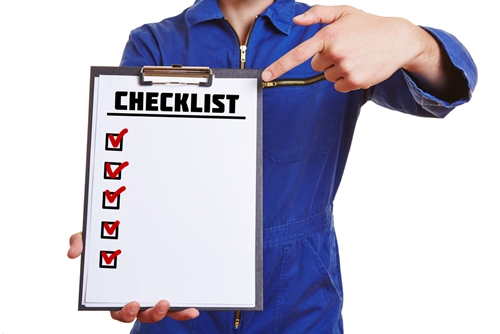When it comes to call recording, you need to be 100 percent positive that you are following every rule and regulation to the letter, otherwise you run the risk of having your organization shut down. The regulations are even more stringent and important in the realm of health care. The federal Health Insurance Portability and Accountability Act of 1996, better known as HIPAA, is a piece of legislation that was put in place to protect the confidentiality of patient records and other health care information, such as insurance account information.
Use the following checklist to ensure that your call center meets HIPAA compliance requirements not only to protect the legitimacy of the call center, but the privacy of the patients and clients with whom you do business:
1. Use encryption for all online transactions
As with any company that handles sensitive data, it’s vital that the devices used to access medical information are encrypted to keep unauthorized third parties from viewing and obtaining said data. According to Unicom Teleservices, encryption is the best method to prevent a breach in security. Whether you conduct your business on a computer, tablet or smartphone, ensure that some sort of encryption is being used for the safest transactions.
2. Keep employees up to date on all policies
HIPAA has been in place for nearly 20 years, and the policies that were originally put forth with this act have changed as technologies have evolved. Ensuring that all employees are well-versed and comfortable with the latest regulatory updates will keep patient data safe and the call center functioning properly, reported Physicians Practice.
This is not only important for patient confidentiality, but the call center could be audited at any point and without warning. Should anyone violate the current terms of the act, the entire call center will be at risk. Staying up to date will provide peace of mind that the patients receive the best possible service that values their security while staying within HIPAA guidelines.
“Ensure that all employees are well-versed with the latest HIPAA updates.”

3. Create and maintain a privacy policy
Even though it is not specifically outlined in HIPAA, creating a call center-specific privacy policy will add an extra layer of security to the preexisting guidelines, noted Unicom. The privacy protocols laid out by the act will protect patient data, but they doesn’t speak to unsecured Internet connections or unauthorized email interactions. Instating a policy that prohibits the transaction of sensitive information in such a fashion will not only bolster the existing policy, but it asserts the call center’s position of online safety practices.
It is vital that these items are followed. Without such practices in place, no call center can achieve HIPAA compliance. With these in place, and call accounting software that is also HIPAA compliant, such as Replay Call Recording from Trisys, your call center will adhere to all necessary regulations with a quality assurance guarantee that not only offers peace of mind, but also a highly trained team of experts to assist you in all your call accounting and call recording questions.






